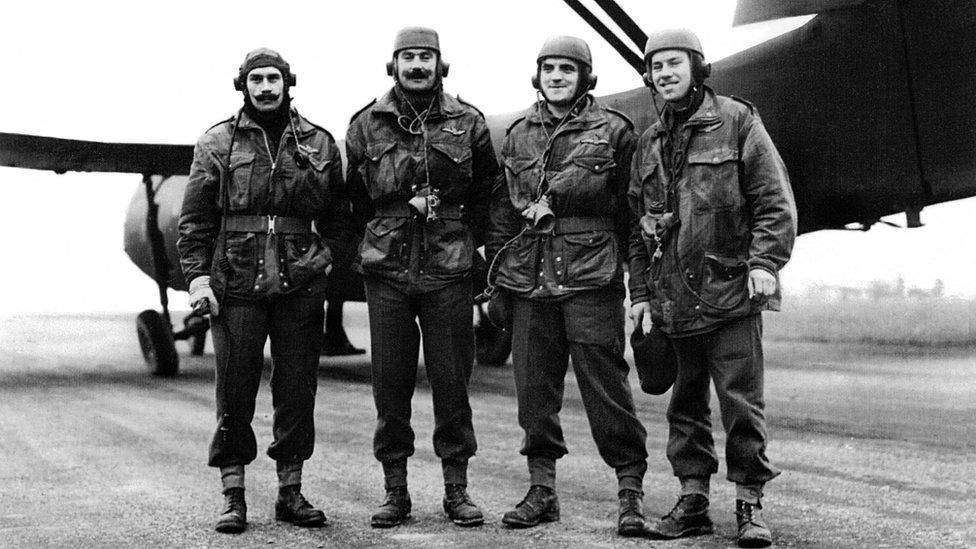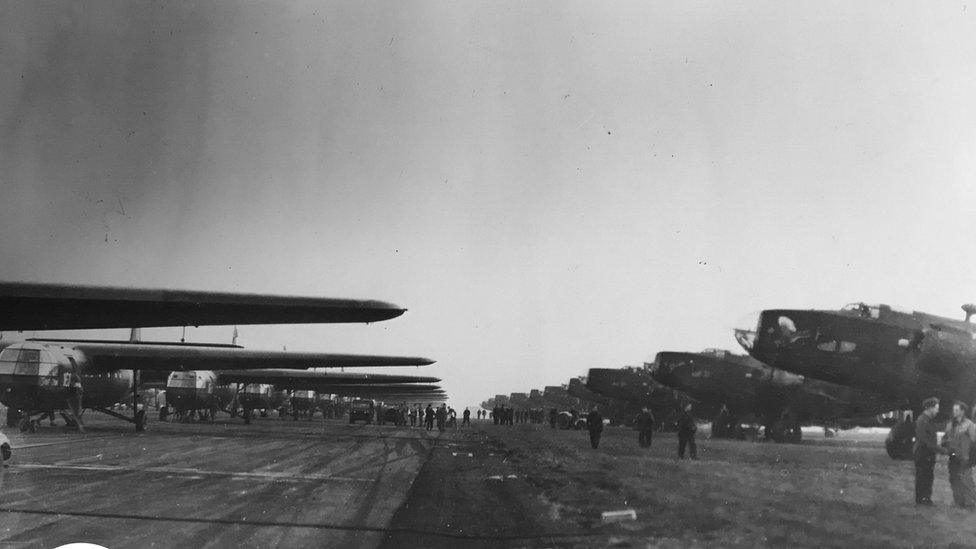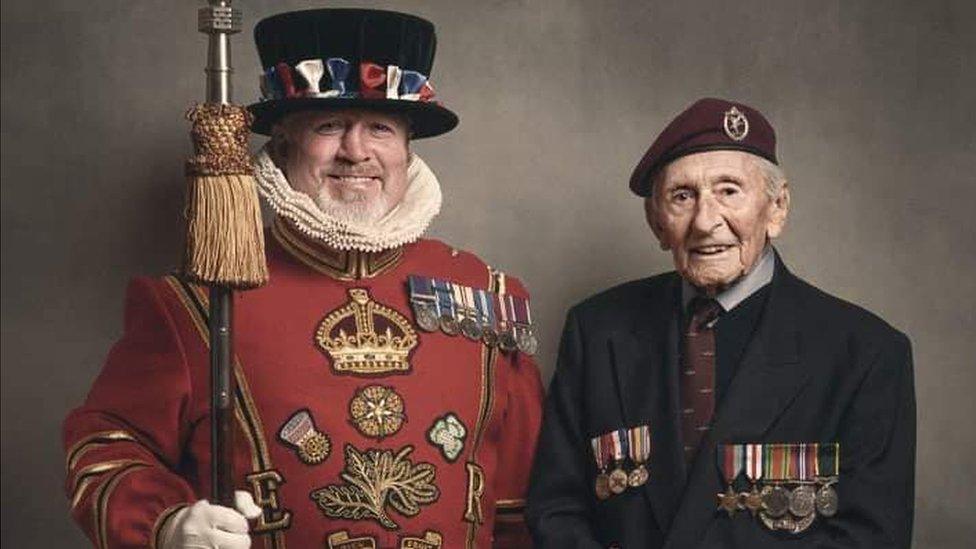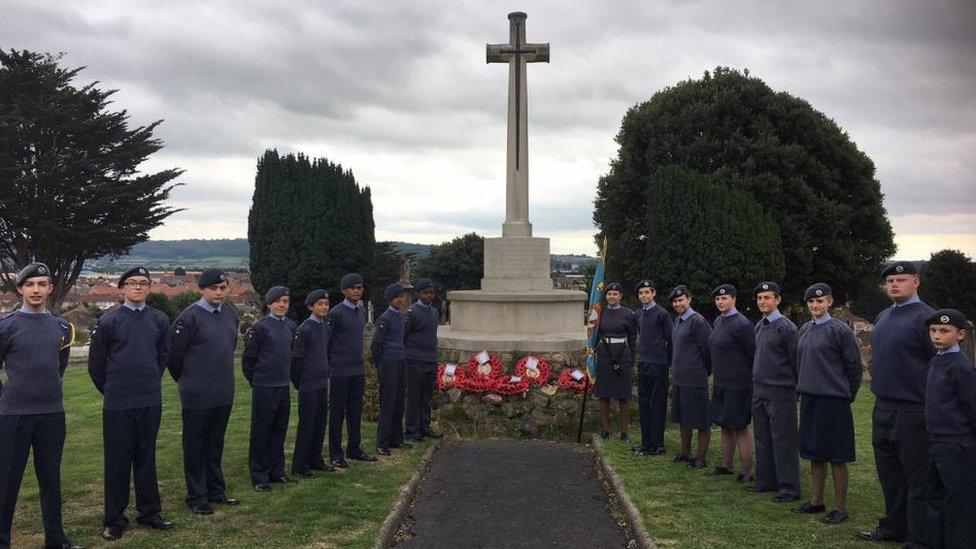Salisbury anniversary fly-past to remember D-Day Gliders
- Published

The anniversary event will commemorate elite WW2 glider pilots who were an important part of the D-Day operations
Glider pilots from World War Two will be remembered during a flypast to mark the 80th anniversary of D-Day.
The event in honour of the Elite Glider Pilot Regiment will take place at Tilshead Stones on Salisbury Plain.
The regiment took part in some of the most daring operations that turned the course of the war.
Jane Barkway-Harney, the daughter of famous WW2 Glider Pilot Geoff Barkway DFM, said her father lost his arm during the D-Day operation.
"My father, who passed away around 17 years ago, was one of the fighters at Pegasus Bridge.
"He actually was shot in the fighting that followed the landing," she said.
Mr Barkway was at the controls of the 3rd Horsa Glider with six other aircraft.
They landed at Pegasus Bridge in the early hours of D-Day on 6 June, 1944.

Ms Barkway-Harney said the gliders were given the nickname "flying coffins"
"The Glider Pilot Regiment were based at Tilshead for their initial training which was known to be tough and demanding.
The craft were made of plywood with a simple fabric covering and earned themselves the nickname "flying coffins".
Glider veterans and their families go back to Tilshead every year for a service to commemorate the founding of the regiment.

The Chairman of Glider Pilot Regiment Society and Yeoman Warder, Scott Kelly (pictured left) with Jim Hooper (pictured right) who was a WW2 Glider Pilot
The Glider Regiment formed amid Winston Churchill's plans for an Airborne Force.
Glider pilot veteran Peter Colthup, who is now 101 years old, said: "I was 17, they said I couldn't go abroad until I was 18, so I joined the Essex regiment [first]," he said.
"We were defending it when they dropped a bomb right near me that hit my leg."
He then joined the Gliders with his "one perfect leg".
"We did D-day and they used us Gliders when they heard the bombers coming," he explained.
"The French Underground then took us back to England after."
The commemorative service is due to start at 11:30 GMT, with the fly-past subject to weather conditions.

Follow BBC West on Facebook, external, X, external and Instagram, external. Send your story ideas to: bristol@bbc.co.uk , external
Related topics
- Published24 September 2023
